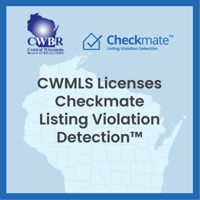VESTAPLUS LLC, a pioneering boutique organization known for its intuitive, powerful, and...
How Every MLS Can Take Responsibility for Listing Compliance
MLS Prop Tech Digest | November issue

If you are wondering how you take responsibility as a Multiple Listing Service (MLS) operator for the heightened level of compliance, you are not alone. The topic was the keynote of many sessions at the Council of MLS September conference in Seattle. The requirement for compliance is serious and it is important that we have helpful dialogue around best practices so that we can learn from each other.
The frustration for many MLS leaders is that there is not a clearly articulated roadmap or playbook that can provide surety. Even more, how does the MLS avoid future litigation? Each MLS must actively demonstrate its commitment to ensuring that participants and subscribers comply with the proposed settlement.
To ensure compliance, the MLSs must be responsible for everything within its control. Minimally, the MLSs must check every single listing and every change repeatedly. This requirement has led many MLSs to add proactive compliance processes to passive compliance strategies.
Passive MLS compliance was derived from crowdsourcing compliance by real estate agents using the MLS systems. The assumption in passive compliance is that every new and updated listing is being reviewed by other agents in the MLS systems. When an agent sees a violation, they report it to the MLS operator, triggering a notification to review the listing and take appropriate action.
The staffing and training requirements for this level of compliance are commensurate with the number of listings and edits that you handle in your MLS. Since the MLS operates 24 hours a day, compliance must be active 24 hours a day.
Adopting a Proactive Approach:
MLS platforms can leverage technology solutions like AI and machine learning to detect and prevent any form of prohibited compensation disclosure or other violations. This proactive approach not only safeguards MLS operators from legal repercussions but also fosters transparency and fair competition in the real estate market. As the industry navigates these changes, embracing technology and prioritizing compliance will be crucial for MLS operators to thrive in this new era.
5 Steps to Enhance the MLS Compliance Process
1. Review your MLS rules.
Most of us recently updated our MLS rules around compensation and concessions. Make sure you have recently undertaken a comprehensive review of all rules from staff, IT and the MLS committee/leadership perspective.
Here are some things to consider:
- Are the rules up-to-date?
- Do the current rules take into account current technology? Current local business practices?
2. Catch errors & violations early.
- Review entries during add/edit to deny violations before they occur.
- Offer pop-up guidance at the field level to explain blocked words, what to enter, what not to enter, etc.
3. Detect violations in both a proactive and reactive manner.
In a reactive manner, members can report an offending member or listing. In a proactive manner, MLSs can check every new and updated listing.
- More MLSs all over the U.S. and Canada are moving to automated detection software, like Checkmate™, to ensure their MLS staff can quickly detect violations and act proactively.
- Smaller MLSs are also adding these types of software to their budgets to better manage data integrity.
4. Check text and images in every listing.
It is not enough to just detect word and text violations in the public and private comments. Every MLS needs to check each listing photo. AI can do much of that heavy lifting.
5. Figure out what works to change the behavior of your members using your own data.
Here are some considerations:
- Do you have the data to see which rules are violated most often?
- Do you have the data to know who is violating rules most frequently (specific agents, certain offices, brokerages)?
- With that data you can target your training content to address the rules that are broken most often and even target the training directly to brokerages, offices and agents that are repeat offenders.
- Track the results from each type of training and communication to see which are most effective.
- Track the results from fines or other consequences to see how effective they are.
- Are your fines and other consequences administered consistently?
I hope these 5 steps help you to begin improving your internal processes. Feel free to reach out if you would like help taking a more proactive approach to compliance.
Kelly Robinson is the Vice President of Sales and Marketing at VestaPlus™ (owned by Combined LA/Westside MLS) operating in Los Angeles. VestaPlus™ provides complete MLS software solutions, including Checkmate™ listing violation detection software, the MLS industry’s “Detect it First™” compliance solution.
-1.png?width=1687&height=363&name=VestaPlus%20(5)-1.png)



